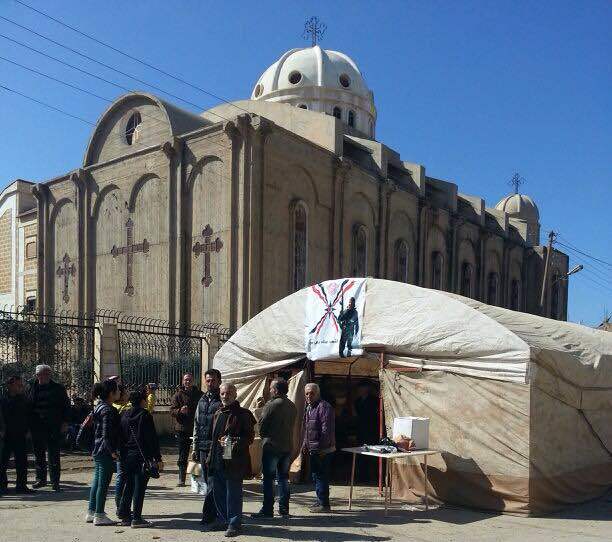|
ISIS suffers military setback, still holds 220-plus Assyrian Christians captive There was an unconfirmed report that the mosque in the Arab Sunni village of Bab Alfaraj had called on people to attend "a mass killing of infidels." That has not happened thus far. By John Newton In a fast-developing, highly fluid story, reports that ISIS has freed all of the more than 220 Assyrian Christians captured late last month turn out to be untrue. In fact, ISIS has relaunched a military campaign in the affected territory, putting still more Assyrian Christians at risk. But ISIS forces are meeting with significant opposition. From his base in Dohuk, Iraq, Archimandrite Emanuel Youkhana, a prelate of the Assyrian Church of the East, who is in regular phone contact with the embattled Assyrian community in northern Syria, reported March 9 that ovver the weekend of March 7-8, intensive airstrikes by US were launched, along with a counter attack by Kurdish and Assyrian fighters. As a result, the ISIS siege of three villages was broken. However, earlier reports that 15 Christians may already be killed in fighting with ISIS attackers were contradicted. Bishop Antoine Audo, S. of Aleppo said: “I contacted the vicar of the Chaldeans in Al Hassake, Father Nidala. He told me that reports about Christians being killed [are] not true.”
There was an unconfirmed report that the mosque in the Arab Sunni village of Bab Alfaraj had called on people to attend “a mass killing of infidels” at Mount Abdul Aziz, but that has so far not come to pass. ISIS did free 19 captives, some reportedly after the payment of ransom. There are no families left in the 35 Assyrian Christian villages, all remaining villagers have now fled to Hassake or Qamishli. The number of registered displaced families stands at 800 families in Hassake and 175 in Qamishli. That number may reach 1,200 families. He told Aid to the Church in Need: “In other words, ISIS was defeated and kicked out from the north side of Khabour river.” However, he added, there has been no further news about the approx. Assyrian captives still held by ISIS. Success on the battle field allowed Kurdish authorities on both the Iraqi and Syrian side of the border to transport in relief supplies for the displaced Assyrian community, support made possible by Catholic charities in Germany, Switzerland and Lebanon. Archimandrite Youkhana offered the following reflection on the plight of the Assyrians: “Their grandfathers survived the genocide of 1915 perpetrated by the Ottomans in Anatolia. The survivors fled to Dohuk, in present-day Iraq, the region becoming its own country in 1932. One year later exactly, in 1933—on August 6 and 7—a new massacre and the first genocide of Assyrian Christians in the new Iraq took place in Semele. Coincidentally, ISIS took control of Nineveh plain on August 6 and 7, 2014! The fathers of the Assyrians under attack today who survived that massacre in 1933 fled to Syria, to start a new life in the Khabour region. Today, a century after the first genocide and 80 years after the second, the present generation is confronted with a potentially third massacre. Three massacres of the same people in one century—enough is enough!” ACN photo: seeking shelter in Hassake; courtesy Assyrian Church, Beirut |
|
|

